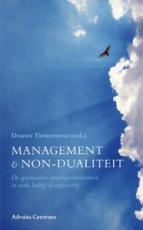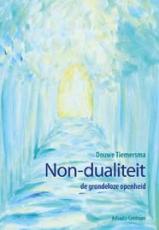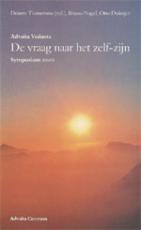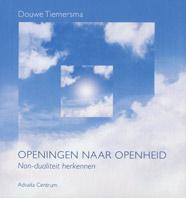Drie geschenken voor de oude dag (T. S. Eliot)
Kees Boukema
*
Let me disclose the gifts reserved for age
To set a crown upon your lifetime's effort
First, the cold friction of expiring sense
Without enchantment, offering no promise
But bitter tastelessness of shadow fruit
As body and soul begin to fall asunder.
Second, the conscious impotence of rage
At human folly, and the laceration
of laughter at what ceases to amuse.
And last, the rending pain of re-enactment
Of all that you have done, and been; the shame
Of motives late revealed, and the awareness
Of things ill done and done to others' harm
Which once you took for exercise of virtue.
Then fools' approval stings, and honour stains.
From wrong to wrong the exasperated spirit
Proceeds, unless restored by that refining fire
Where you must move in measure, like a dancer.
To set a crown upon your lifetime's effort
First, the cold friction of expiring sense
Without enchantment, offering no promise
But bitter tastelessness of shadow fruit
As body and soul begin to fall asunder.
Second, the conscious impotence of rage
At human folly, and the laceration
of laughter at what ceases to amuse.
And last, the rending pain of re-enactment
Of all that you have done, and been; the shame
Of motives late revealed, and the awareness
Of things ill done and done to others' harm
Which once you took for exercise of virtue.
Then fools' approval stings, and honour stains.
From wrong to wrong the exasperated spirit
Proceeds, unless restored by that refining fire
Where you must move in measure, like a dancer.
(Fragment uit deel II van 'Little Gidding' (vierde gedicht van de 'Four Quartets') van T.S. Eliot)
De 'Four Quartets' van T.S.Eliot (1888-1965) zijn vier gedichten, elk bestaande uit vijf kleine delen waarin - net als in een strijkkwartet - met beelden, klank en ritme, met het laten horen van thema's en variaties een lyrisch, soms didactisch verhaal wordt verteld. Herhaaldelijk terugkerende thema's in deze gedichten zijn: tijd, beweging en bewustzijn. Eliot blikt terug op eigen leven, kijkt naar de wereld om hem heen en gaat na onder welke condities het bewustzijn werkt, het eigen leven is geleefd en het onderzoek zelf zich voltrekt. De vragen die Eliot hier stelt zijn van alle tijden, maar moeten telkens opnieuw onder woorden gebracht worden. Elk van de vier gedichten heeft een eigen locatie: Burnt Norton, East Coker, The Dry Salvages en Little Gidding; van daaruit wordt het innerlijk landschap verkend.
De gedichten bevatten citaten uit, of toespelingen op de denkbeelden van Herakleitos, Dante, de Engelse Hegeliaan Bradley, het bijbelboek Prediker, de Bhagavad Gita en mystici als Johannes van het Kruis en Julian of Norwich. Omdat Eliot bovendien familiegrapjes verwerkt en soms jargon gebruikt dat alleen in kleine kring bekend is, is zijn poëzie niet erg toegankelijk en de neiging om - net als bij een strijkkwartet - ervan te genieten zonder te kunnen vertellen waar het nu eigenlijk over gaat is dan ook groot.
Het hierbij afgedrukte fragment uit het tweede deel van het vierde gedicht (4, II) was echter een relaas dat ik onmiddellijk herkende, al was ik niet op het idee gekomen om vreugdeloze gevoelloosheid, bits cynisme en de schaamtevolle terugblik op eigen leven 'geschenken' te noemen. Aangespoord door Eliots devies 'old men ought to be explorers' (2, V) ging ik na waarom Eliot spreekt van 'gifts reserved for age'. Ik citeer relevante versregels en de begrippen die mij in dit verband opvielen.
In het eerste deel van het eerste gedicht 'Burnt Norton' wandelt de dichter in de tuin van een onbewoond huis, gebouwd op de plek waar tweehonderd jaar eerder een landgoed door brand was verwoest:
Time present and time past
Are both perhaps present in time future,
And time future contained in time past.
If all time is eternally present
All time is unredeemable.
Are both perhaps present in time future,
And time future contained in time past.
If all time is eternally present
All time is unredeemable.
Bradley's opvatting dat verleden en toekomst niet op dezelfde manier gezien kunnen worden als het heden, maar - voor zover ze werkelijkheidswaarde hebben - als hoedanigheden van het heden, wordt hier in deze openingsregels bondig onder woorden gebracht. Eliot zal er herhaaldelijk op terug komen; onder meer in die zin, dat een mens aan zijn verleden en zijn afkomst niet kan ontkomen.
Gaande door de rozentuin herbeleeft Eliot een extatisch moment. Zijn bewustzijn wordt gevuld en stroomt weer leeg, zoals de drooggevallen vijver volstroomt met zonlicht, dat even later weer verdwijnt.
Dry the pool, dry concrete, brown edged,
And the pool was filled with water out of sunlight,
And the lotos rose, quietly, quietly,
The surface glittered out of heart of light,
And they were behind us, reflected in the pool.
Then a cloud passed, and the pool was empty.
And the pool was filled with water out of sunlight,
And the lotos rose, quietly, quietly,
The surface glittered out of heart of light,
And they were behind us, reflected in the pool.
Then a cloud passed, and the pool was empty.
De roos (schoonheid omgeven door doornen) is in de westerse mystiek symbool van de vereniging met Gods liefde. De lotus (schoonheid van, maar niet in de modder) is in de mystiek van het Oosten symbool van Verlichting.
In het tweede gedicht, 'East Coker' bevindt de dichter zich op voor hem historisch gebied. Hier woonde de familie Eliot voor zijn voorvader Andrew Eliot Engeland verliet en zich in Amerika vestigde. In het tweede deel vraagt de dichter, met de auteur van Prediker, zich af: 'Wat voordeel heeft de mens van al zijn arbeid, die hij arbeidt onder de zon?'
What was to be the value of the long looked forward to,
long hoped for calm, the autumnal serenity,
And the wisdom of age?
long hoped for calm, the autumnal serenity,
And the wisdom of age?
Wat is de waarde van overlevering en levenswijsheid van ouderen?
(..........) There is, it seems to us,
At best only a limited value
In the knowledge derived from experience.
The knowledge imposes a pattern, and falsifies,
For the pattern is new in every moment
And every moment is a new and shocking
Valuation of all we have been.
At best only a limited value
In the knowledge derived from experience.
The knowledge imposes a pattern, and falsifies,
For the pattern is new in every moment
And every moment is a new and shocking
Valuation of all we have been.
Levenswijsheid reduceert elke nieuwe ervaring tot iets wat je al eens hebt meegemaakt. Daarom:
(..........) Do not let me hear
Of the wisdom of old men, but rather of their folly,
Their fear of fear and frenzy, their fear of possession,
Of belonging to another, or to others, or to God.
The only wisdom we can hope to acquire
Is the wisdom of humility: humility is endless.
Of the wisdom of old men, but rather of their folly,
Their fear of fear and frenzy, their fear of possession,
Of belonging to another, or to others, or to God.
The only wisdom we can hope to acquire
Is the wisdom of humility: humility is endless.
En dan opnieuw:
I said to my soul, be still, and wait without hope
For hope would be hope for the wrong thing; wait without love
For love would be love of the wrong thing; there is yet faith
but the faith and the love and the hope are all in the waiting.
Wait without thougt, for you are not ready for thougt:
So the darkness shall be the light, and the stillness the dancing.
For hope would be hope for the wrong thing; wait without love
For love would be love of the wrong thing; there is yet faith
but the faith and the love and the hope are all in the waiting.
Wait without thougt, for you are not ready for thougt:
So the darkness shall be the light, and the stillness the dancing.
Pas als het geloof, de hoop en de liefde leeg zijn, zonder vorm, kan in nederigheid een volledig andere werkelijkheid worden verwacht. Dit is het slot van dit gedicht:
Old men ought to be explorers
Here and there does not matter
We must be still and still moving
Into another intensity
For a further union, a deeper communion
Through the dark cold and the empty desolation,
The wave cry, the vast waters
Of the petrel and the porpoise. In my end is my beginning.
Here and there does not matter
We must be still and still moving
Into another intensity
For a further union, a deeper communion
Through the dark cold and the empty desolation,
The wave cry, the vast waters
Of the petrel and the porpoise. In my end is my beginning.
De slotzin is een omkering van de aanhef van dit gedicht: de dood als inleiding tot een nieuw leven.
Het derde gedicht 'The dry salvages' is gesitueerd in Eliots geboorteland Amerika. De titel verwijst naar een rotsachtig eilandje met vuurtoren voor de kust van Cape Ann, Massachusetts. Eerder (2, V) schreef Eliot; "Home is were one starts from. As we grow older/the world becomes stranger, the pattern more complicated/of dead and living". In dit gedeelte wordt de rekening opgemaakt. De ontmaskering van de hoogmoed, de devotie die geen object meer heeft en de zekerheid van het sterven:
There is the final addition, the failing
Pride or resentment at failing powers,
The unattached devotion which might pass for devotionless,
In a drifting boat with a slow leakage,
The silent listening to the undeniable
Clamour of the bell of the last annunciation.
Pride or resentment at failing powers,
The unattached devotion which might pass for devotionless,
In a drifting boat with a slow leakage,
The silent listening to the undeniable
Clamour of the bell of the last annunciation.
De onontkoombaarheid van het einde leidt tot een wisseling van perspectief:
It seems, as one becomes older,
That the past has another pattern, and ceases to be a mere sequence
Or even development …
The moments of happiness-not the sense of well-being,
Fruition, fulfilment, security or affection,
Or even a very good dinner, but the sudden illumination-
We had the experience but missed the meaning,
And approach to the meaning restores the experience
In a different form, beyond any meaning,
We can assign to happiness (..........)
That the past has another pattern, and ceases to be a mere sequence
Or even development …
The moments of happiness-not the sense of well-being,
Fruition, fulfilment, security or affection,
Or even a very good dinner, but the sudden illumination-
We had the experience but missed the meaning,
And approach to the meaning restores the experience
In a different form, beyond any meaning,
We can assign to happiness (..........)
In de laatste regel suggereert Eliot dat het lijden - in tegenstelling tot het geluk - beperkt is tot de tijdelijke wereld, zekerheid daaromtrent heeft hij niet (3,V):
(..........) To apprehend the point of intersection of the timeless
With time is an occupation for the saint-
No ocupation either, but something given and taken
In a lifetime's death in love,
Ardour and selfnessness and self-surrender.
With time is an occupation for the saint-
No ocupation either, but something given and taken
In a lifetime's death in love,
Ardour and selfnessness and self-surrender.
Voor de meesten van ons is er alleen het onverwachte moment als men zichzelf even vergeet: "music heard so deeply / that it is not heard at all, but you are the music / While the music lasts' (....) 'and the rest is prayer, observance, discipline thought and action". Een strak programma van geestelijke oefeningen om door de vormen van de tijd te breken.
Het vierde en laatste gedicht 'Little Gidding' dateert van 1942. De oorlog die in 1939 in Europa was begonnen had zich uitgebreid tot Afrika en Azië; de afloop was nog hoogst onzeker. Little Gidding is een kapel gebouwd op de plaats waar driehonderd jaar eerder een klooster was verwoest door de soldaten van Cromwell. In het tweede deel van dit gedicht vindt een ontmoeting plaats met een vreemd, maar vertrouwd wezen. Er ontstaat een gesprek tussen de dichter en de geestverschijning aan het eind waarvan de laatste spreekt over 'the gifts reserved for age' die de kroon zetten op een levenlang zwoegen (zie gedicht in kader).
1) Als lichaam en ziel uit elkaar vallen: de kille wrijving van uitdovende zinnen, slechts met uitzicht op de bittere smakeloosheid van schaduwvruchten.
2) Het besef van machteloze woede om menselijke dwaasheid en het schrijnend lachen om wat niet leuk meer is.
3) De knagende pijn van het herinneren van wat je deed en wie je was; de schaamte om motieven die je nu doorziet en tot je doordringt, dat de dingen die je toen voor nobel hield onjuist waren en anderen hebben geschaad.
De getergde geest schrijdt voort van fout naar fout:
(......) unless restored by that refining fire
Where you must move in measure like a dancer.'
Dit is opnieuw een verwijzing naar Dante's Purgatorio (XXXVI, 148): de ziel op weg naar God doet boete voor haar zonden (hier de zonden van wellust, gramschap en hoogmoed).Where you must move in measure like a dancer.'
Het derde deel van Little Gidding is didactisch van toon:
This is the use of memory:
For liberation - not less of love but expanding
Of love beyond desire, and so liberation
From the future as well as the past.
For liberation - not less of love but expanding
Of love beyond desire, and so liberation
From the future as well as the past.
Wat we weten en voelen, verdwijnt en wijzelf verdwijnen, worden vernieuwd, getransformeerd:
(...) See how they vanish,
The faces and places, with the self wich, as it could, loved them,
To become renewed, transfigured, in another pattern.
The faces and places, with the self wich, as it could, loved them,
To become renewed, transfigured, in another pattern.
En dan volgt een passage, die Eliot nog tweemaal, in iets andere bewoordingen, zal herhalen:
Sin is behovely, but
All shall be well, and
All manner of thing shall be well.
All shall be well, and
All manner of thing shall be well.
Eliot citeert hier de veertiende-eeuwse kluizenares en mystica Julian of Norwich. Zij wordt theologe genoemd in de oorspronkelijke betekenis van het woord: iemand die God kent. In haar was mystieke ervaring en theologische reflectie verenigd. Net als Eliot leefde Julian of Norwich in een tijd van massale sterfte en verwoestingen. De extreem wrede, honderdjarige oorlog was uitgebroken, de Zwarte Dood eiste duizenden slachtoffers, in Norwich werd een boerenopstand hardhandig neergeslagen en hun leider werd geëxecuteerd vlakbij de plaats waar zij verbleef. Tijdens intense concentratie op een crucifix kreeg ze visioenen van de liefde van God, "Revelations of Divine Love".
Ze beschreef deze ervaringen in 1373, direct na haar herstel, en nog eens twintig jaar later toen ze zich de draagwijdte van wat ze gezien en gehoord had volledig had gerealiseerd. Zo kreeg ze iets te zien niet groter dan een hazelnoot, in de palm van haar hand en hoorde: "This is everything wich is made." Ze uitte haar verbazing dat zoiets nietigs niet verloren ging en kreeg ten antwoord: "It lasts and always will, because God loves it." Twintig jaar later zal ze daaraan toevoegen: "Because of the tender love which our good Lord has for all who will be saved, he comforts readily and sweetly, meaning this: It is true that sin is the cause of all this pain, but all will be well and every kind of thing will be well. These words were revealed most tenderly, showing no kind of blame to me or to anyone who will be saved." (1393, ch. 27) en "When we know and see, truly and clearly, what our self is, then we shall truly and clearly see and know our Lord God in the fullness of joy.(........) And therefore this belongs to our properties, both by nature and by grace to long and desire with all our powers to know ourselves, in wich full knowledge we shall truly and clearly know our God in the fulness of endless joy."(1393, ch. 28 en 46).
In het slot van het tiende hoofdstuk van hetzelfde geschrift beschrijft ze drie zaken die we voor ogen moeten houden als we God zoeken:
1) Dat we geduldig en volhardend zoeken met, als het kan, opgewektheid.
2) Dat we standvastig op hem wachten uit liefde voor hem zonder gemopper, tot het einde van ons leven.
3) Dat we een groot en volledig vertrouwen in hem hebben, want hij wil dat wij weten dat hij plotseling en gezegend zal verschijnen aan allen die hem liefhebben. Want hij werkt in het verborgene en zijn verschijning zal plotseling zijn.
Mogelijk waren het deze woorden van Julian of Norwich die maakten dat Eliot sprak over de "Gifts reserved for age". Bij het ouder worden, worden we op onze spirituele zoektocht naar de grond van ons bestaan minder gehinderd door onze hartstochten. We zijn meer in staat om in 'nederigheid' te wachten, dat wil zeggen: open voor wat er gebeurt in en buiten de tijd, mits we ons zelf niet langer opsluiten in onze hoogmoed noch in onze schaamte daarover. In volledig vertrouwen gaan we de weg "into another intensity for further union, a deeper communion". (2, V)
Eliot citeert opnieuw Julian of Norwich:
And all shall be well and
All manner of thing shall be well
By the purification of the motive
In the ground of our beseeching.
All manner of thing shall be well
By the purification of the motive
In the ground of our beseeching.
Julian of Norwich is, in de woorden van Eliot een 'Saint' die in een 'lifetime's death in love, ardour and selflessness and selfsurrender' het gegeven was "to apprehend the point of intersection of the timeless with time" (3, V). Voor hen die in de eindigheid leven zijn er geestelijke disciplines. Eliot weet dat hij naar Little Gidding is gekomen om te bidden en dat gebed meer is dan een "order of words, the consious occupation of the praying mind or the sound of the voice of the prayer mind' (4, I). Bidden is, schrijft Julian of Norwich: "right understanding of that fulness wich is to come, with true longing and trust (.......).Let us do what we can, and meekkly ask mercy and grace and everything that is lacking in us we shall find in him. And this is what he means when he says: I am the foundation of your beseeching. For the whole reason why we pray is to be united into the vision and contemplation of him to we pray" (1393, ch. 42).
Dit zijn versregels van de coda van de laatste van de 'Four Quartets':
We shall not cease from exploration
And the end of all our exploring
Will to be arrive where we started
And know the place for the first time.
(…)
A condition of complete simplicity
(costing not less than everything)
And all shall be well and
All manner of thing shall be well
When the tongues of flame are in-folded
Into the crowned knot of fire
And the fire and the rose are one.
And the end of all our exploring
Will to be arrive where we started
And know the place for the first time.
(…)
A condition of complete simplicity
(costing not less than everything)
And all shall be well and
All manner of thing shall be well
When the tongues of flame are in-folded
Into the crowned knot of fire
And the fire and the rose are one.
De spirituele weg die Eliot wijst is er een waar de louterende boetedoening voortduurt tot het einde, 'when the fire and the rose are one'.
*
Er is geen tweeheid
als je ontspannen bent
in zelf-bewustzijn
is dat duidelijk.
Boeken
Douwe schreef en redigeerde gedurende zijn leven boeken. Via onze uitgeverij zijn deze nog verkrijgbaar.



